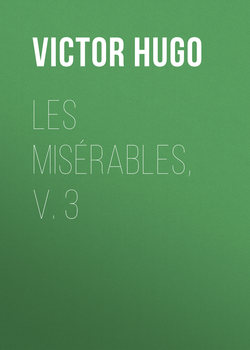Читать книгу Les Misérables, v. 3 - Victor Hugo, Clara Inés Bravo Villarreal - Страница 6
BOOK I
PARIS STUDIED IN ITS GAMIN
CHAPTER VI
A BIT OF HISTORY
ОглавлениеAt the epoch almost contemporary with the action of this book there was not, as at the present day, a policeman at every street corner (a blessing which we have no time to discuss), and wandering children abounded in Paris. Statistics give us an average of two hundred and sixty shelterless children picked up annually by the police of that day in unenclosed fields, in houses building, and under the arches of bridges. One of these nests, which became famous, produced "the swallows of the Rue d'Arcole." This, by the way, is the most disastrous of social symptoms, for all the crimes of the man begin with the vagabondage of the lad.
We must except Paris, however, and in a relative degree, and in spite of the statistics we have just quoted, the exception is fair. While in any other great city a vagabond child is a ruined man, while nearly everywhere the boy left to himself is to some extent devoted and left to a species of fatal immersion in public vice, which destroys honor and conscience within him, the gamin of Paris, though externally so injured, is internally almost intact. It is a magnificent thing to be able to say, and one revealed in the splendid probity of our popular revolutions, that a certain incorruptibility emanates from the idea which is in the atmosphere of Paris, as from the salt which is in the ocean water. Breathing Paris preserves the soul.
But what we have just stated does not in any way decrease the heart-contraction which we feel every time we meet one of these lads, around whom we fancy that we can see the threads of the broken family fluttering. In our present civilization, which is still so incomplete, it is not a very abnormal fact that families thus broken up should not know what becomes of their children, and allow their own flesh and blood to fall upon the highway. Hence come these obscure destinies; and this sad thing has become proverbial, and is known as "being cast on the pavement of Paris."
Let us remark parenthetically that such desertion of children was not discouraged by the old monarchy. A little of the Bohemian and Egyptian element in the lower classes suited the higher spheres, and the powerful ones profited by it. Hatred of national education was a dogma; of what good were half-lights? Such was the sentence, and the vagabond boy is the corollary of the ignorant boy. Besides, the monarchy sometimes wanted lads, and then it skimmed the streets. In the reign of Louis XIV., to go no farther back, the King wished, rightly enough, to create a fleet. The idea was good; but let us look at the means. No fleet is possible unless you have by the side of the sailing-vessels, which are the plaything of the winds, vessels which can be sent wherever may be necessary, or be used as tugs, impelled by oars or steam; and in those days galleys were to the navy what steam-vessels now are. Hence galleys were needed; but galleys are only moved through the galley-slave, and hence the latter must be procured. Colbert ordered the Provincial intendants and parliaments to produce as many convicts as they could, and the magistrates displayed great complaisance in the matter. A man kept on his hat when a procession passed; that was a Huguenot attitude, and he was sent to the galleys. A boy was met in the street; provided that he was fifteen years of age and had no place to sleep in, he was sent to the galleys. It was a great reign, a great age.
In the reign of Louis XV. children disappeared in Paris; the police carried them off and no one knew for what mysterious employment. Monstrous conjectures were whispered as to the King's purple baths. It sometimes happened that when boys ran short, the exempts seized such as had parents, and the parents, in their despair, attacked the exempts. In such a case Parliament interfered and hanged – whom, the exempts? No, the fathers.
